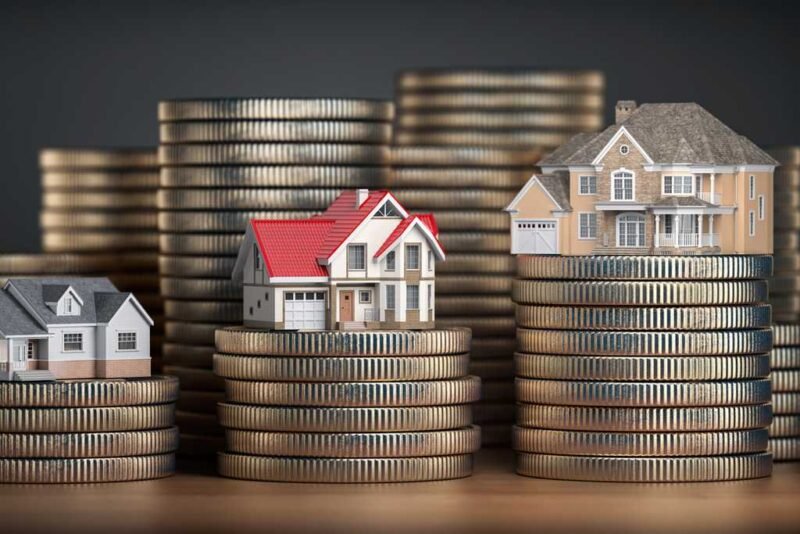Choosing Your Market & Timing the Investment Wisely
Successful real estate investment hinges on understanding your local market more than just the national trends. The factors influencing your specific area will play a crucial role in the success of your investment. It’s wise to avoid overly hot markets where property prices are soaring, as you risk buying at a peak and potentially losing money.
Real estate markets move in cycles due to the pursuit of economic gains, and each market is at a different stage in its housing cycle. Look for markets in the expansion phase, where sales and prices are increasing, affordability remains good, construction is low, and capital investment is on the rise. The specific market you’re in should guide your investment approach, particularly since peak construction often happens after peak housing demand, leading to oversupply and lower prices for a period, typically lasting 1-3 years until a price floor is established.
To thrive in real estate investment, focus on properties in neighborhoods with high population density, ongoing development, and essential amenities nearby. High-demand neighborhoods typically share these characteristics:
- Low crime rates
- Quality schools
- Access to parks and recreational areas
- Nearby medical facilities
- Family-friendly environments
- Public transportation
- Shopping centers and restaurants
- Good walkability
These factors contribute to high housing demand. When supply matches this demand, investors should seize the opportunity while entry prices are still reasonable. Avoid areas that rely on a single economic driver, like the tourism or auto industry, as these can lead to significant declines in property values if the local economy falters, as seen in Detroit when the auto industry declined.
Buy Low
Investing in real estate is similar to investing in dividend-paying stocks—the return on investment depends largely on how cheaply you acquire the property. However, you must also consider the potential return. A low-cost house in a risky neighborhood may be inexpensive, but it won’t generate much income either.
Tap into the Hidden Market
The best deals come from buying properties from distressed sellers, often well below market value. Instead of looking at foreclosure auctions, which can yield properties in poor condition, target sellers who need to sell quickly but haven’t listed the property yet. Situations like divorces or families selling a deceased relative’s home often present opportunities to buy well-maintained properties at a discount.
Understand Your Costs Upfront
If you’re new to real estate investment, it’s crucial to understand all the costs involved. These go beyond just the purchase price and realtor commissions. You’ll need to account for repairs, which many beginners underestimate. Costs to fix structural issues, electrical problems, or pest infestations can quickly add up. DIY repairs often reduce the property’s value, especially if they don’t meet code requirements. Don’t forget to budget for closing costs, insurance, and utilities, or you might end up losing money on the deal.
Understand the Market
A thorough understanding of your local real estate market helps you evaluate the true value of investment properties. Know the average price per square foot and potential rental income in the area. Renovate properties to appeal to likely buyers; for instance, avoid reducing bedroom counts in family-oriented neighborhoods or sacrificing closet space for features that won’t be appreciated by the target market. Focus on real estate markets with strong growth, like metro Atlanta, where demand has led to substantial increases in home values in recent years.
Manage Your Risks in Real Estate Investment
Risk management is key to successful real estate investment. Avoid taking on too much debt; aim to put at least 10% down on an investment property, with 20% being ideal to eliminate private mortgage insurance and secure a lower interest rate. Maintain a substantial cash reserve to avoid the need to sell a property quickly at a loss and to cover unexpected repairs. Don’t be afraid to pass on a deal if the numbers don’t add up, and never fall in love with an investment property—remember, you’re not the one living there.
Go for “Best in Class” – Not “The Best”
A common mistake in real estate investment is trying to make a property the best in the area, which can lead to overbuilding and losing money. Instead, aim for “best in class” touches, such as fixing what’s broken and adding small but impactful upgrades. Avoid expensive renovations that won’t yield a good return in the given market.
Maximize the Value of Real Estate
Look for ways to increase the value of your investment property, such as renting out underutilized space or offering value-added services like trash pickup or security in apartment complexes. Another approach is to create turnkey rental properties by renovating and leasing the property before selling it to another investor.
Know the Rules and Regulations of Real Estate Investment
Always be aware of local regulations before making changes to a property, such as adding rental units, converting spaces for commercial use, or making significant renovations. Understanding what’s allowed can save you from costly mistakes.
Consider Non-Traditional Real Estate Investments
Real estate investment isn’t limited to single-family homes or apartment buildings. You can also invest in office buildings, storage units, industrial spaces, and warehouses, all of which can generate rental income. In some cases, a triple-net lease can reduce costs by having the tenant cover insurance, property taxes, and maintenance, providing a steady cash flow with minimal out-of-pocket expenses.











